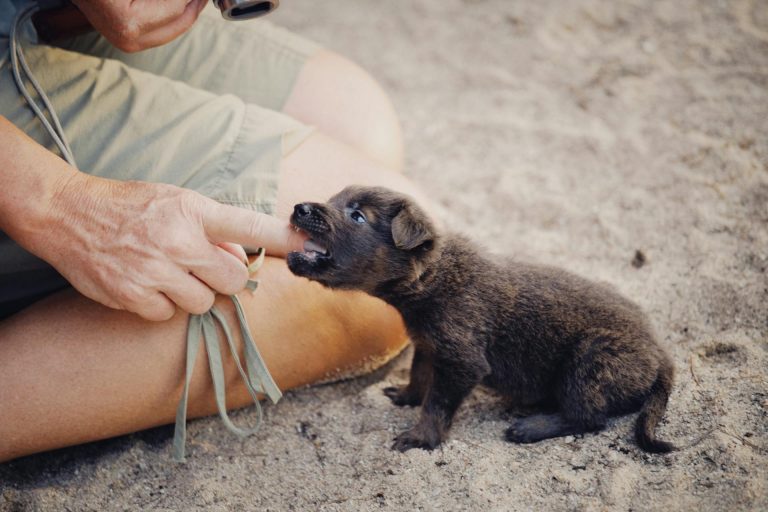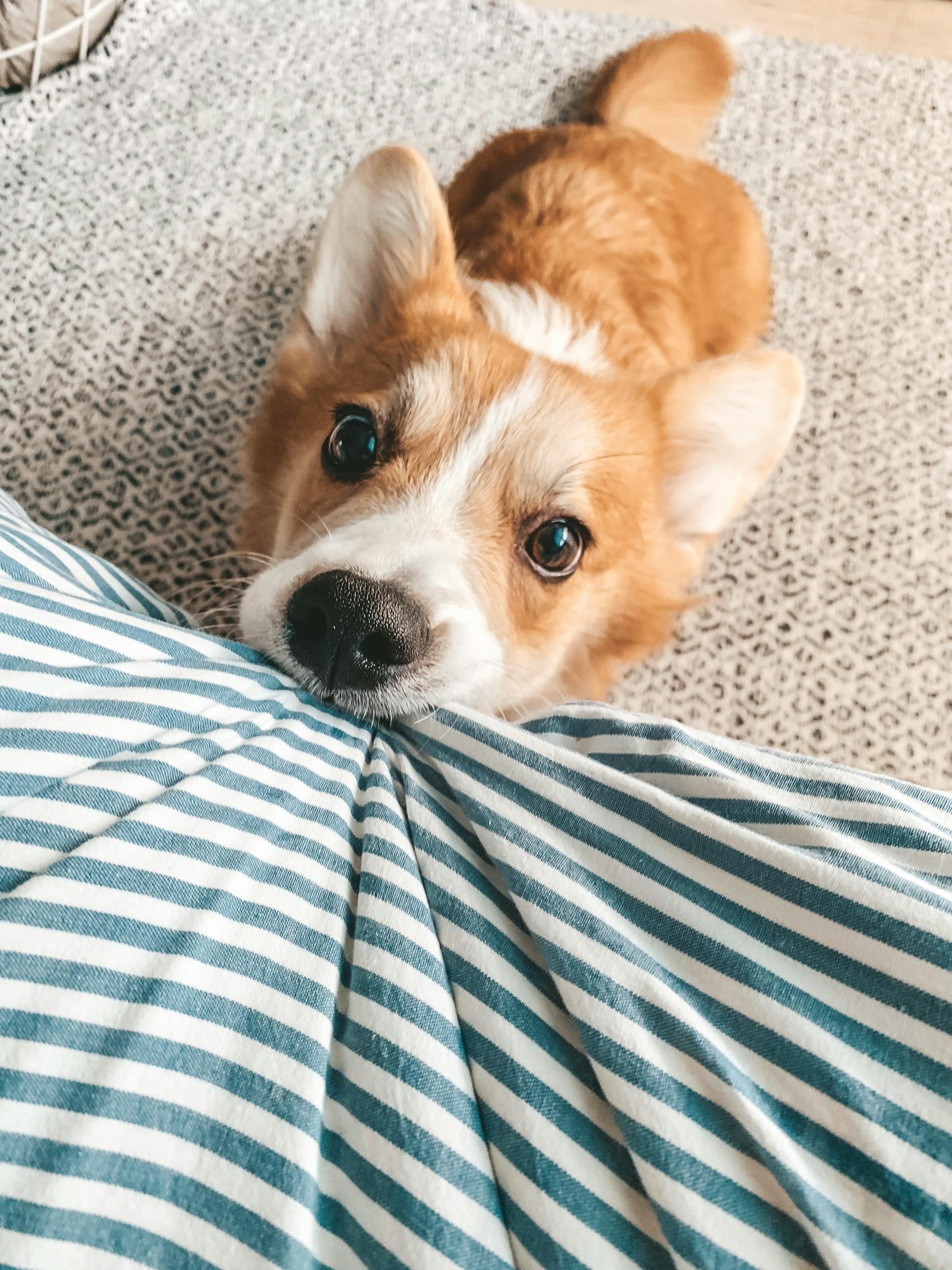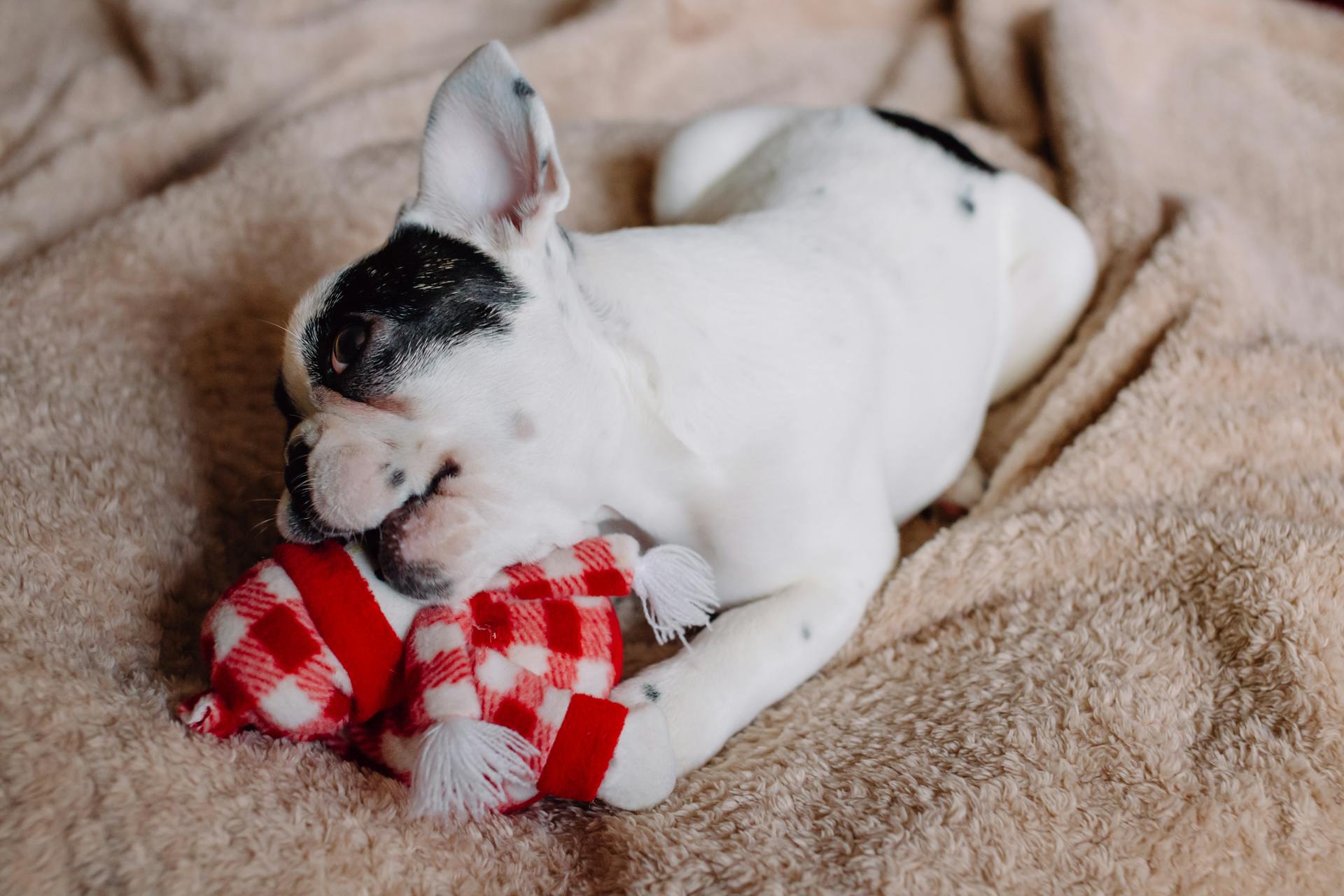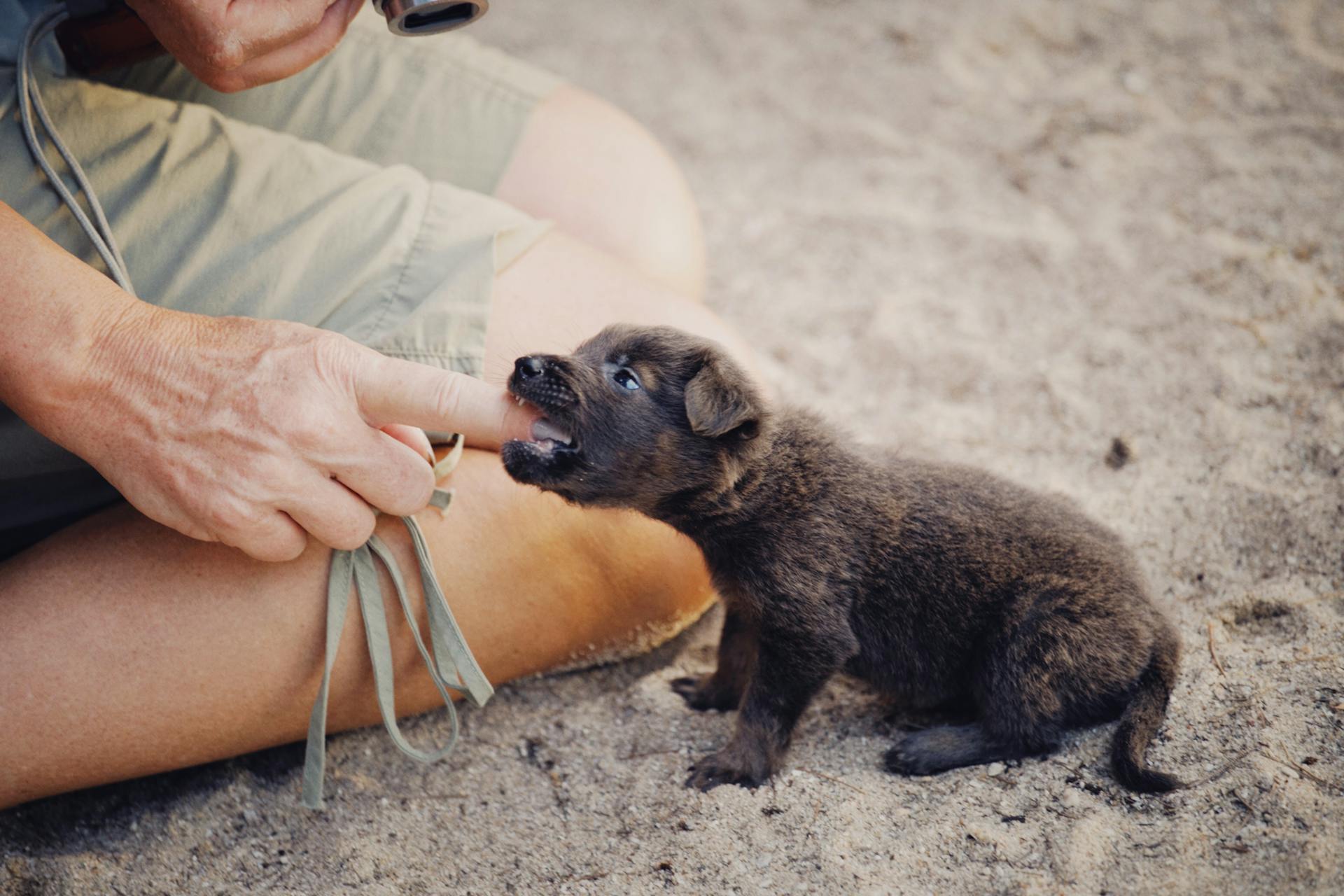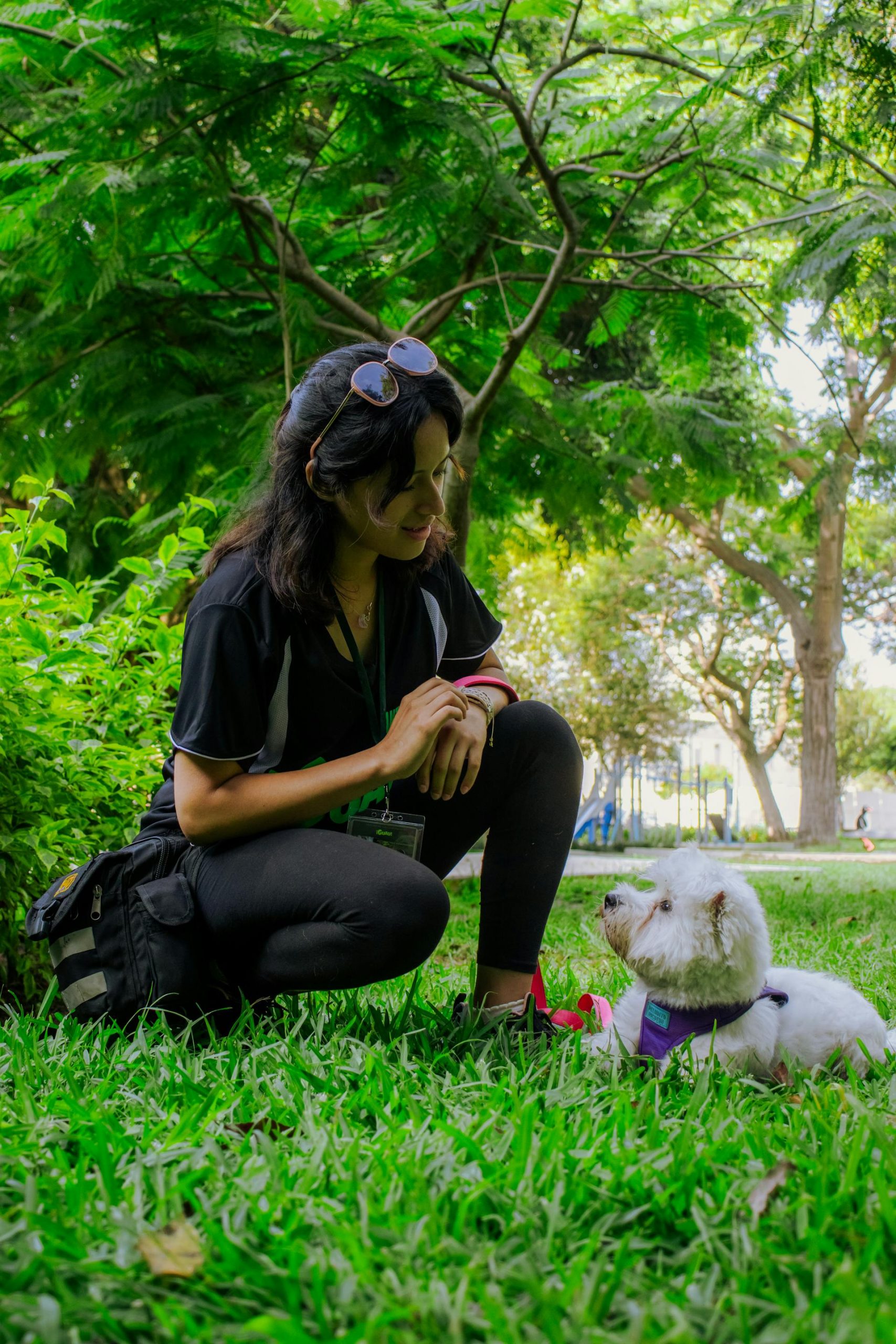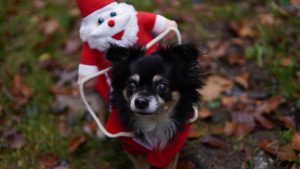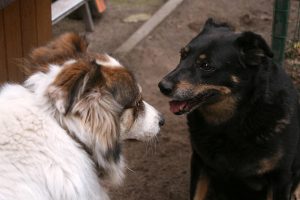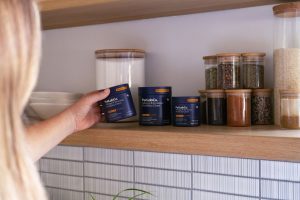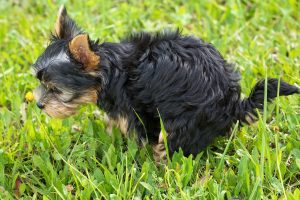Oh, the good old days. I remember people asking me “Does your dog bites” when Milo was a young puppy. And he was nipping them to show love. Milo loved nipping. Of course, not all people tolerate it. Nor should you encourage it as an owner.
Puppies love to play. But it takes them a bit of time to learn bite inhibition. The good news is that they learn bite inhibition through play. Often, this happens during play with littermates. Some puppies, however, do not learn it.
So, if your new puppy was separated early on, or he/she didn’t learn bite inhibition as a young puppy, you might have a problem.
I have heard many pet parents talk about nipping. So, what can you do if you have a nipper?
What is puppy nipping?
Here are some good news. Your puppy should outgrow nipping by six months. Even if you do nothing, your puppy might outgrow this behavior.
However, I am not good at betting. I am not good at playing the odds. I want to be certain something will happen and will do anything in my power to make it happen. You should do the same. Do not wait nipping to go away on its own.
Now, let’s talk about what is puppy nipping. The simplest definition is “behavior where young dogs use their mouths to nip at people or objects”. It is a natural part of puppy development. Puppies use their teeth to explore the world around them and interact with others. In most cases, nipping is playful. In rare cases, it can turn into aggressive puppy biting and painful experience.
Why do puppies nip?
I said before that nipping is a natural behavior for puppies. To consider it natural, we have to explain the reasons behind it. Fun fact: some herding dogs nip in their adult years as well. For example, Border Collies, Blue Heelers, and Corgis. Their instinct is to nip to herd cattle.
If you have a herding young puppy, I suggest you put even more effort into stopping this behavior. That being said, there are several reasons why a young dog might nip:
- Puppies going through their teething phase, which lasts between three and six months of age. Their baby teeth fall out and adult teeth come in. During this phase, puppies nip and chew as their teeth are itching
- Young puppies use their mouth to interact with littermates and humans during play. It is a normal play behavior, usually gentle and accompanied by playful body language
- Young puppies explore the environment using their mouth. Their scent senses and vision are not yet fully developed. So, they nip at various objects, people, and animals to understand their surroundings
When is nipping a problem?
Now let’s go deeper into this mouthy behavior. What is normal nipping, and what is problematic nipping? You never want to let nipping turn into aggressive puppy biting. Let’s explain both behaviors.
- Normal nipping includes gentle and playful nipping. It doesn’t cause harm or pain. Normal nipping occurs during playing and exploration
- Problematic nipping or aggressive biting includes hard bites, and persistent nipping that doesn’t respond well to training. Often, aggressive nipping is a result of anxiety, fear, or lack of socialization
What are you doing wrong?
I see it all the time. New and inexperienced dog owners and pet parents have trouble handling this mouthy behavior. News flash: you are the one to blame, not your new puppy. There are a couple of mistakes that inexperienced dog owners make. And as a result, their puppy training results in failure. Do you want to be successful with your dog training? Check if you are making some of these mistakes.
Inconsistent reaction
Different response when your puppy nips. Your inconsistency confuses a puppy, making it harder for him to learn what is acceptable and what is not. For example, allowing nipping and then punishing it. Or varying the tone during puppy training.
Here is another example. Different commands and cues. Or different people training your puppy in a different way. When you have a young puppy in the household, it is important that all family members stick to the same consistent approach.
Encouraging nipping during play
I have to admit, I was doing this for a bit with Milo as well. I wanted to wrestle with my puppy, but I quickly realized the mistake I was making.
The more you reinforce a behavior, the more your puppy does it. And sometimes, pet parents reinforce a behavior without knowing it. For example, your dog barks at the doorbell ringing, and instead of calming your dog, you yell. That reinforces your dog to bark harder. Your dog doesn’t know he is doing something wrong.
Ignoring a behavior
Next on the list, ignoring a behavior. If you do not address nipping, your dog might think it is an acceptable behavior. Remember, for your puppy, nipping is a normal behavior used to explore its surroundings.
How to stop puppy mouthing?
Now let’s talk about what you can do to address the puppy nipping me problem. I will break it down into different strategies. Each one works fine on its own.
But if you combine them, your success rate goes up.
- Mimic littermates – when your puppy nips at you, yelp in a high-pitched voice. It is the same thing a startled puppy would do. It will signal your dog that the bite is too strong
- Offer an escape route, or redirect its attention to a chew toy. Now, I wouldn’t suggest this is a single long-term strategy. Why? Because it can teach your dog that nipping leads to toys. But for an occasional strategy, it works well. It gives your puppy an outlet for that playful energy
- Use a firm “ouch” or “no. Similar to the first strategy, but a bit more advanced. You can also use a plush toy, and when your puppy nips strongly, say “ouch”, signaling that the toy is feeling pain. This is my way of teaching bite inhibition
- Time-outs, or ignoring your dog. When nipping occurs, remove the puppy from the situation. Pause the game and ignore your dog. It will teach him that nipping results in losing attention and stopping playtime
- Last, but not least, you can enroll your pet in puppy socialization classes where he will play with other young dogs and learn bite inhibition naturally
Final Words
The most important part here is to reward consistently. And reward even when your dog is playing without nipping. That is the best reinforcement tool you can use. Play gently with your puppy and use treats and praise.
The more consistent you are, the quicker your dog will learn. Adjust strategies and try different things. Do not stick to just a single technique. Each technique on its own is good. But only when you combine them, you can achieve great things.

